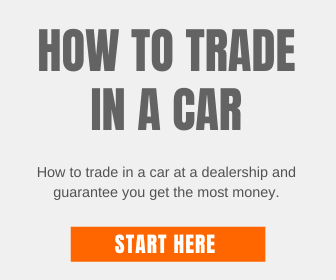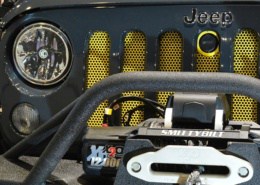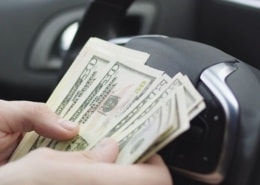The Certified Used Car Scam
The certified pre-owned used car scam can be an honest mistake made by dealership staff or an intentional attempt to trick you.
Whatever it is, you should know how it works and how to protect yourself. A dealer doesn’t want to get stuck with a substandard vehicle any more than you want to own one.
What is a Certified Used Car Program?
In search of a way to give consumers peace of mind when buying a used car and increase used car sales for the dealers. Manufacturers and car dealerships have devised several “certified used car programs.”
Certified Pre-Owned Programs (CPO Programs) were developed to encourage more people to purchase used cars. Numerous dealerships and the majority of manufacturers provide certified used car programs.
For most vehicles to qualify as “certified used” vehicles, the warranty must be backed by the original vehicle manufacturer. The car manufacturer is using its dealers to inspect the vehicle, determine if it is worth certifying, and then offer coverage on the car for some time beyond the original manufacturer’s warranty.
Not all used cars will qualify for CPO programs, and manufacturer terms vary from one brand to the next. Still, any actual certified pre-owned program will include at least a 100-point visual and mechanical inspection of the vehicle.
Usually, a used car has to pass a specific inspection process to become a certified vehicle. This is to help the car buyer feel at ease knowing the used vehicle is in good working order and should be free from any previous primary frame, flood, or fire damage (including accidents). Some manufacturers will add additional protection and benefits if you buy a certified used car.
Common Benefits to Buying a Certified Pre-Owned Vehicle
Certified used vehicle programs offer consumers greater peace of mind and less risk and allow the dealer to charge a higher price for the car. Statistics show that used car buyers like these programs, making them very successful for the dealer.
- 3 to a 12-month comprehensive warranty
- 100-point or more quality assurance inspection
- Roadside Assistance for up to 12 months
- 70 to 100k limited power train warranty
- Include a vehicle history report
- Special incentive financing with the dealer
Before buying any used car, completing these two steps will decrease your chance of buying someone else’s problem.
1. Get and review a used car history report on the vehicle you’re buying.
2. Have the vehicle inspected by a certified used car mechanic.
The above benefits will all have mile limitations or “fine print.”
I advise reading the fine print and making sure you’re making a good buying decision.
How does a Does a Used Vehicle Become Certified?
Most certified pre-owned vehicles have low mileage, are in “like-new” condition, have never been in an accident, and have a clean vehicle history report. Many cars that qualify for certification come from rental fleets, off-lease vehicles, and dealer trade-ins.
The engine and transmission, airbags, exhaust system, safety equipment, suspension, brakes, tires, and wheels, as well as the doors, paint, hoses, engine belts, battery, lights, windows, interior, and electrical system, are all checked out during the driving and inspection of each certified used car.
CPO vehicles may also offer limited warranties, roadside assistance, vehicle return policies, and special finance rates. These types of offers will vary depending on the manufacturer or the dealership.
Do Certified Pre-Owned Vehicles Cost More?
The peace of mind that comes with buying a certified used car does have an added cost. All the added protection, such as warranties and roadside assistance, are not free.
Usually, the added cost when buying a certified pre-owned vehicle would vary greatly depending on the dealership, manufacturer, auto, and program. An accredited vehicle’s mark-up ranges between 5-10% more than a non-certified used car.
This amount, in dollars, can be $500 on cheaper vehicles and up to $5,000 or more on higher-class luxury vehicles.
What to Look for in a Certified Used Car Program
Some independent car dealers may have a certified used car program also. Some of these dealerships will just put up banners, give their program a fancy name, and advertise. Be aware the manufacturers do not usually back these types of programs or dealerships.
These CPO programs may not have the same high standards set and offer the same quality used car. Some of these independent dealers’ certified used car programs might be complete scams.
Certification programs are backed by manufacturers that provide the dealership personnel with specialized training, policies, inspection standards, and warranties. Before buying a certified used car from a dealer, look for the inspection report, warranty, and guarantee that should come with the vehicle.
What’s Happening With Certified Used Cars?
Every day, thousands of used cars are bought and sold at auctions throughout the country. Vehicles with previous damage are bought cheaply by dealers, and sometimes these identical vehicles slip through the cracks of their certified inspection process.
Dealers make mistakes when buying cars at auction; mechanics make mistakes when inspecting vehicles going through the process. Even though it may be an honest mistake, the uneducated consumer will be the one left owning the lousy car.
Is a substandard car slipping through the certified process a mistake? Maybe, but it’s too hard to prove otherwise. Ignorance is not an excuse once you’ve already signed all the paperwork and become an owner. The best thing you can do to protect yourself is NOT TO BUY ONE!
Even if a car is deemed a “Certified Used Car” by the dealer and becomes available for sale to the public, it’s your responsibility to protect yourself from buying a rebuilt wreck. These vehicles might have had flood, fire, or frame damage repaired or rebuilt; the car might have previously been called a “lemon.” Buying one of these cars will be very costly for you.
How to Avoid the Certified Used Car Scam
- Ask to see the used car’s CPO inspection checklist. The CPO checklist will show any imperfections fixed after the technician examined the vehicle before placed on the lot for sale.
- If you’re planning to buy a car, don’t rely on the dealer to provide a vehicle history report. Keeping in mind that car history data can be easily falsified, keep in mind that they are trying to sell you the vehicle.
- Before buying a used car or while shopping for used cars online, personally acquire a used car history report. If shopping online, you can use the VIN to get a report and save yourself a trip if it comes back as a bad vehicle.
- The competition will get you the best price. Research and review used cars through trusted online car shopping sites that provide free no-obligation price quotes before visiting a car dealership.
- No matter who you buy a vehicle from, you should always have the car inspected by an independent certified mechanic before purchasing the vehicle. A mechanic can tell you if a used car has been in a previous accident in minutes. Please do this in conjunction with inspecting the vehicle’s used car history report.
- Never sign an “As-Is-Where-Is, No Warranty” agreement when buying a used car from a dealership without some added protection. If you must sign an “As-Is-Where-Is, No Warranty,” make sure you have the vehicle independently inspected by a certified mechanic and have personally acquired a used car history report on the vehicle you’re looking to buy.









